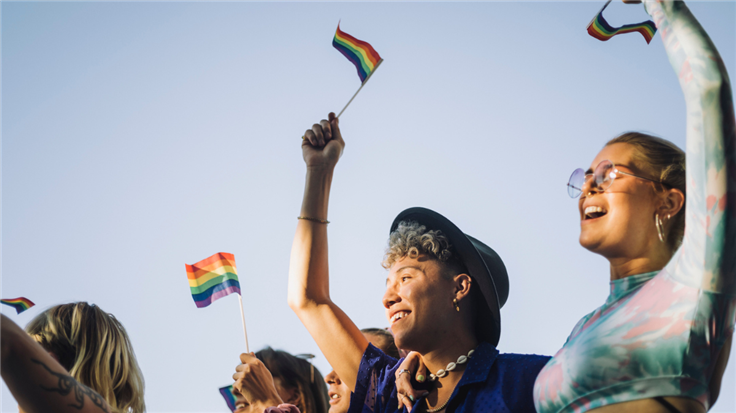The internet is great for bringing people together, helping you feel part of a community, and staying in touch with your nearest and dearest. But it can also be a nasty place – from malware to scammers, to people just being plain awful to others. It’s probably not surprising to read that recent research by the Anti-Defamation League (ADL) showed LGBTQAI+ people were the marginalized group most harassed online, with 51% of transgender people and 47% of LGBQ+ people—compared with 33% of all Americans— reporting online harassment of some sort within the last 12 months.
So, while the tips below are good advice for anyone, the stats show it’s tougher online for LGBTQAI+ people, and that means it’s really important to do as many of them as you can. Think we missed anything? Let us know in the comments section.
1. Secure your online accounts
Avoid handing over your accounts to anyone who shouldn’t have access by getting the security basics right.
- Use strong, unique passwords for every account
- Consider a password manager to help you keep hold of all those passwords
- Enable MFA wherever you can.
These three things do take a bit more time than if you didn’t do them, but they are the best way to keep your accounts secure.
2. Deal with cyberbullies
If someone is bullying you online, block and report them as soon as you can. Pretty much every platform will offer this function, so make sure you use it. Confide in a trusted friend or family member, especially if the bullying is having a significant impact on your mental health. And, if the bullying has reached criminal proportions, consider reporting it to the relevant authority in your region.
3. Be careful when meeting an online friend IRL
It would be all too easy to say “never meet anyone face to face that you met online,” but that’s not practical. However, there are some things you can do to stay as safe as possible.
Meet in a public place, and let a friend know who you are meeting and where. Then check in with them after you return home.
Make sure the person is who they say they are by doing a reverse image search of the person’s picture. If you see the same image posted next to someone else’s name, or even multiple people’s names, then you might well be talking to a scammer.
4. Stay safe on social
Don’t reveal personal information about you such as your address or date of birth which could be used by fraudsters, doxxers or stalkers. If you’re going away then leave that information off your social media until you return, so your home isn’t targeted.
It’s worth periodically checking your social media privacy settings too to make sure they’re at the level you are comfortable with.
5. Respect others’ privacy
Sure, you might want to show off your camo jumpsuit to your Instagram followers, but maybe the go-go dancer behind you doesn’t want their photo published online. If someone is in a photo that you want to put online, make sure you get explicit consent from them before posting.
6. Steer clear of hate
Finally, we all know there is a lot of nasty stuff going on online. It’s easy to get sucked into reading or interacting with others you disagree with, but that also might be detrimental to your mental health. The hate comes from within them, and it isn’t worth your energy to engage with them. If you know there’s a forum, comments section or somewhere else where you’re likely to encounter hate, avoid it.
We don’t just talk about threats—we remove them
Cybersecurity risks should never spread beyond a headline. Keep threats off your devices by downloading Malwarebytes today.










